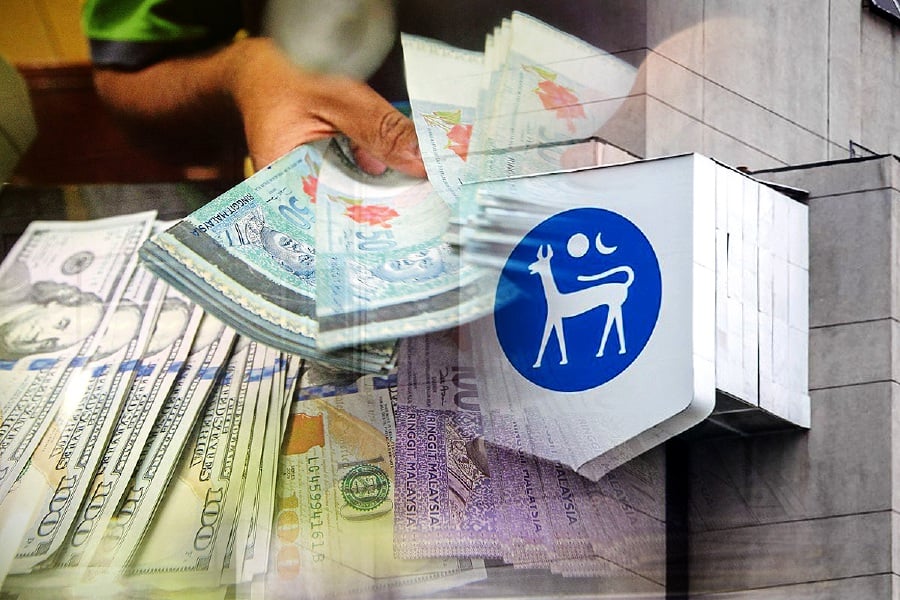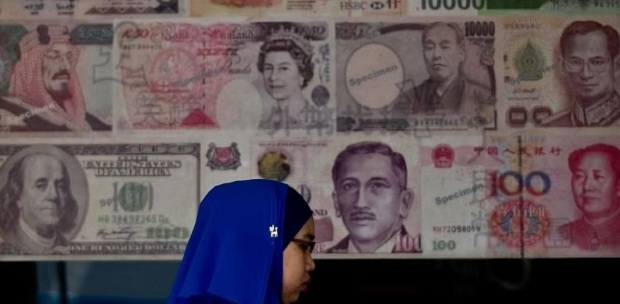KUALA LUMPUR: Bank Negara Malaysia's (BNM) utilisation of currency forwards is an effective strategy to stabilise the ringgit and maintain economic stability.
According to Doris Liew, an economist and assistant research manager at IDEAS Malaysia, currency forwards can alleviate immediate pressure on the foreign exchange market, thereby helping to stabilise the ringgit.
Liew emphasised that this approach can prevent rapid currency depreciation, which could otherwise lead to higher import inflation and economic instability.
"By opting for forwards instead of directly intervening in the spot market, BNM can keep its foreign exchange reserves relatively stable.
"The use of currency forwards can also boost investor confidence by demonstrating that the central bank is actively managing and supporting the currency. This can lead to a temporary strengthening of the ringgit. BNM's actions are driven by the view that the ringgit is currently undervalued, making this move strategically sound," she told Business Times.
However, Liew cautioned that over the long term, relying heavily on currency forwards can make the ringgit more sensitive to global market sentiments.
She added that if the forward positions become too large, any sudden bearish shift in global sentiment could lead to a sharp devaluation of the ringgit, negatively impacting economic stability.
Liew also highlighted that the sustained use of forward contracts might mask underlying economic issues without addressing them directly.
She said that if the fundamental causes of currency weakness, such as trade imbalances and economic performance issues are not resolved, BNM might eventually need to dip into its reserves to defend the currency, which could deplete reserves over time.
Nonetheless, Liew said the ringgit is not overvalued, and the current account remains in surplus, reducing the risk of a currency crisis.
She noted that the financial tools the central bank could use include direct foreign exchange market intervention, interest rate adjustments, and capital controls.
"Direct foreign exchange market intervention would lead to a rapid depletion of foreign exchange reserves, making our currency and economy more vulnerable to external shocks.
"Adjusting interest rates, currently at three per cent following a 25 basis point increase in July 2023, is another avenue to support the ringgit. However, raising interest rates can negatively impact economic growth and investments.
"Capital controls, which involve restricting capital inflows and outflows, could affect international trade and the business environment and are generally not advised," she said.
Overall, Liew said given BNM's optimistic outlook on the ringgit, using currency forwards is a timely choice to support the currency.
However, she stressed that we cannot rule out the possibility of an interest rate hike, although it is unlikely considering that Malaysia's economy is still recovering from the downturn caused by the Covid-19 pandemic and global supply chain disruptions.
Centre for Market Education chief executive officer Carmelo Ferlito said BNM is using currency forwards because these instruments are customisable and do not require upfront payments.
He explained that they are based solely on interest rate spread and thus they do not involve volatile investors' sentiment expectations.
"I think that BNM aims at launching to the market a signal of commitment to defend the ringgit, while at the same time respecting market forces.
"A currency forward is customisable, as it can be tailored to a specific amount, maturity, or delivery period without involving an upfront payment," he said.
However, Ferlito pointed out that a currency forward is a binding obligation; the buyer or seller of the contract cannot back out if the agreed rate eventually turns out to be different from expectations.
Nonetheless, he described it as a non-aggressive tool, adding that it might be the right decision.
"But I think BNM is right when pointing out that a long-term solution for the ringgit can only come from structural reforms (as the decline in the competitiveness index demonstrates)," he added.
Meanwhile, a senior economist believes that the central bank's strategy of utilising currency forwards to stabilise the ringgit, rather than directly intervening in the spot market and depleting foreign exchange reserves, is a prudent short-term measure.
He noted that this approach helps manage currency volatility and preserves the country's foreign exchange reserves, which are crucial for maintaining economic stability and meeting external obligations.
"I think in the medium to long term, this method can enhance investor confidence by showcasing the central bank's proactive and resourceful management of the currency.
"However, over-reliance on forwards without addressing underlying economic issues, such as trade imbalances or fiscal deficits, could eventually undermine investor confidence and strain foreign exchange reserves when forward contracts mature.
"Therefore, while the use of forwards can provide immediate relief and stability, it should be part of a broader, transparent economic strategy that includes structural reforms and sound monetary policies to ensure sustainable long-term economic health and confidence in the ringgit," he opined.
It has been reported that BNM has increased its utilisation of currency forwards to strengthen the ringgit, thereby easing pressure on its foreign exchange reserves.
This proactive measure aimed to support the ringgit, which reached its lowest level since the 1997-1998 Asian Financial Crisis in February amid concerns over a deteriorating export outlook.
The ringgit is now trading at around 4.7065 per dollar, marking a recovery from its lowest point in 26 years at 4.8053 set in February.





